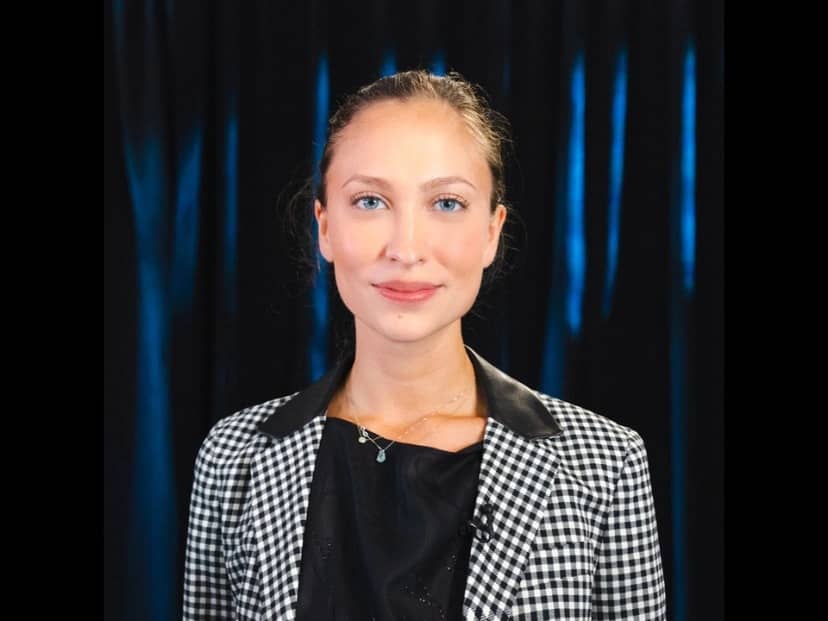Subscribe to wiki
Share wiki
Bookmark
Mara Schmiedt
The Agent Tokenization Platform (ATP):Build autonomous agents with the Agent Development Kit (ADK)
0%
Mara Schmiedt
Mara Schmiedt is the Co-Founder and Chief Executive Officer of Alluvial, a company focused on enterprise and institutional liquid staking solutions through its flagship initiative, Liquid Collective. She is a blockchain executive recognized for her work in staking solutions and decentralized finance. [1] [2] [5]
Education
Schmiedt earned a Bachelor of Science (B.Sc.) degree from The London School of Economics and Political Science (LSE), graduating with First Class Honours. She has obtained additional professional certifications, including the Business and Financial Modeling Specialization from The Wharton School and PwC’s Data-driven Decision-Making course. [1] [10]
Career
Schmiedt started her professional career in financial consulting at PricewaterhouseCoopers (PwC). She later worked as a Summer Analyst at Endeavor, focusing on entrepreneurship ecosystems, and briefly interned at JPMorgan Chase & Co. These early experiences in finance and strategic consulting contributed to her later work in blockchain infrastructure.
In 2018, she joined ConsenSys, where she worked as a Venture Architect and Strategy Manager. At ConsenSys, she contributed to the development of Codefi, a blockchain-based application suite for Web3 commerce and finance. She co-authored research on Ethereum staking and liquid staking mechanisms and collaborated with the Ethereum Foundation on projects related to staking infrastructure and validator coordination.
She later transitioned to Bison Trails in 2020, a blockchain infrastructure provider, where she was responsible for business development initiatives. Following Coinbase’s acquisition of Bison Trails in 2021, she became Head of Sales for Coinbase Cloud, where she managed staking services for institutional clients and worked on blockchain infrastructure solutions.
In 2022, Schmiedt co-founded Alluvial and became its CEO. Alluvial focuses on developing Liquid Collective, an enterprise-oriented liquid staking protocol. Before becoming CEO, she served as the company's Chief Growth Officer, leading strategic initiatives related to partnerships and industry engagement. She is also a board member at Obol Labs, where she supports the development of distributed validator technology (DVT) to improve staking infrastructure resilience.
Schmiedt has contributed to research on blockchain and staking technologies, including "The Internet Bond" and "Ethereum 2.0 Staking Ecosystem Report". Her work has explored liquid staking and validator coordination in decentralized networks.
In 2024, Schmiedt was listed in Forbes’ 30 Under 30 Europe in the Finance category for her contributions to blockchain infrastructure and finance. Schmiedt is also involved in open-source technology initiatives and angel investing. [1] [2] [3] [4] [6] [7] [8] [9]
Interviews
Mara Schmiedt on Staking and Decentralization #01
On November 5, 2023, Mara Schmiedt appeared on the "Korea Blockchain Week" YouTube channel, where she discussed the evolution of staking, security risks, and the role of decentralization in the broader adoption of blockchain technology.
During the interview, she outlined how staking has transitioned from a niche activity to a fundamental component of blockchain ecosystems, driven by increasing participation from enterprises and institutions. According to Schmiedt, staking not only enhances network security but also serves as a safeguard against inflation, making it a key element for asset protection.
She emphasized the importance of risk management, particularly in relation to slashing, and highlighted the need for participants to be well-informed about potential vulnerabilities. Ethereum’s decentralized design was also discussed as a critical factor in maintaining network resilience, reducing correlated risks, and reinforcing overall security.
Schmiedt further elaborated on the advantages of liquid staking, which she described as a mechanism that allows users to participate in staking while retaining liquidity. She noted that this approach simplifies the user experience and makes blockchain participation more accessible. Throughout the discussion, she underscored the significance of collaboration within the blockchain industry, stressing that collective efforts are essential for developing secure and sustainable staking solutions. [11]
Institutional Staking and Market Dynamics #02
On May 17, 2024, Schmiedt was featured on the Epicenter Podcast, where she discussed the impact of spot Bitcoin ETFs, institutional staking, and the evolving landscape of Ethereum staking and decentralization.
In the interview, she examined the influence of spot Bitcoin ETFs on market participation, noting that the significant assets under management indicate strong institutional interest in cryptocurrency investments. She highlighted the need for robust security and compliance measures in institutional staking, pointing to initiatives like Liquid Collective as efforts to address these concerns while fostering participation.
Schmiedt addressed the balance between decentralization and centralization in staking, explaining that while liquid staking enhances flexibility, it may also concentrate control among a few entities. She emphasized the importance of architectural design in ensuring true decentralization.
She also discussed the risks associated with increased staking participation, noting that while it strengthens network security, it may also impact Ethereum’s monetary policy and staking yields. The conversation included insights on multi-operator staking architectures, which can reduce risks linked to centralization while enhancing security.
According to Schmiedt, the blockchain ecosystem continues to evolve, with new solutions emerging to encourage diverse participation and mitigate centralization trends. She noted that institutional engagement in Ethereum staking is increasing, reflecting broader adoption and the maturation of the ecosystem. [12]
See something wrong?
The Agent Tokenization Platform (ATP):Build autonomous agents with the Agent Development Kit (ADK)
